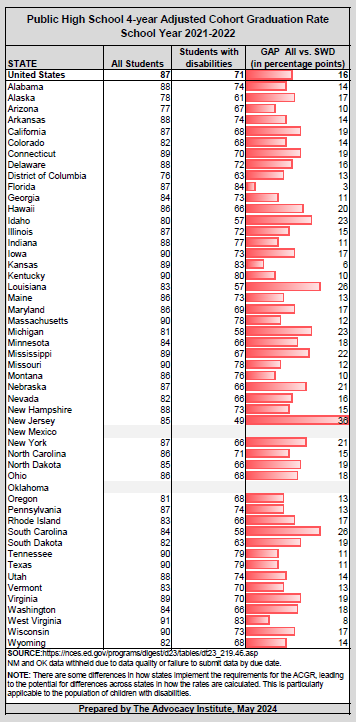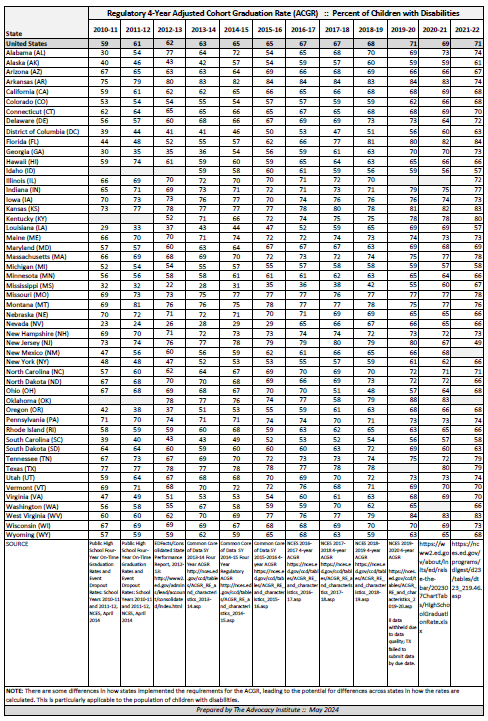State-by-state Graduation Rates for Students with Disabilities :: 2021-2022
All states are required to report annually to the U.S. Dept. of Education (ED) the “4-Year Adjusted Cohort Graduation Rate (ACGR)” for all students and separately for many student subgroups, including students with disabilities.
ABOUT THE 4-Year Adjusted Cohort Graduation Rate (ACGR): The ACGR was put into place in 2008 via Federal regulations to help bring uniformity to the way states calculate the high school graduation rate. Reporting began with the 2010-2011 school year. The ACGR was subsequently included in the Every Student Succeeds Act (ESSA) passed in 2015. It was also the subject of non-regulatory guidance released by ED in January 2017.
States are to report only those students who graduated with a “regular high school diploma” in four (or fewer) years. ESSA defines a “regular high school diploma” as the “standard high school diploma awarded to the preponderance of students in a State that is fully aligned with the State’s standards.”
The table below provides the GAP between all students and students with disabilities (IDEA-eligible) in 2021-2022 by state. Keep in mind that the GAP would be larger if it were possible to compare students with disabilities to those without disabilities. Also note that there are some differences in how states calculate the ACGR. This is particularly applicable to the population of children with disabilities. For example, states determine who is included in a variety of ways (started the cohort with an IEP, exited the cohort with an IEP, etc. (The source for these data is available here.)

The table below shows the performance of students with disabilities over the twelve (12) years since ACGR reporting began in 2010-2011. Each state must set an annual ACGR goal for all students and student groups as part of their ESSA state plan and report that data in its annual state report card. (Learn more about ESSA here.)

See also:
State-by-state Graduation Rates for Students with Disabilities:
2019-2020, 2018-2019, 2017-2018, 2016-2017,2015-2016
Building a Grad Nation 2023